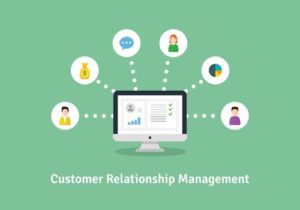Like most businesses, you probably want to find ways to connect your sales and marketing efforts. You may have heard that using a customer relationship manager (CRM) can help, but you’re not sure how it all works. This post will explain how using a CRM in sales and marketing can help teams work together more effectively.
Using a CRM in Sales and Marketing Keeps Track of Customers and Leads
One of the ways a CRM helps connect sales and marketing efforts is by assisting organizations in keeping track of customers and leads. This is possible because CRMs store customer data in a central database. HubSpot, for instance, provides tracking features so sales managers can see which leads are being worked on, how they’re progressing, and what types of interactions have taken place. Both the sales and marketing teams can then access and share this information.
In addition, using a CRM will help to automate marketing tasks, such as sending emails or making phone calls. As a result, the sales and marketing teams can work more efficiently and effectively. This helps businesses ensure that no leads are falling through the cracks.
Employees Have Access from Anywhere at All Times
CRM is cloud-based, making it accessible from anywhere at any time. This can be very useful when providing timely assistance to current or potential customers. In addition, businesses can keep track of customer interactions, manage their sales pipeline, and automate their marketing tasks from anywhere in the world.
Shortens the Sales Process
One of the benefits CRMs is that it shortens the sales process by automatically sending leads the most relevant information. For instance, HubSpot lets you see all the people who have visited your site. Using that data, you can create personalized experiences for each individual. Furthermore, it keeps track of each lead’s stages in the sales funnel. This helps the sales team by giving them an idea of when would be the best time to contact leads and provide more information about the product or service.
Connects Seamlessly to Your Website and Social Accounts
Another advantage is that CRMs integrate seamlessly with your website and social media accounts. This integration allows you to see how visitors interact with all your content. For example, with HubSpot, you can see which pages they visit, what they click on, and how long they stay on each page.
This information is valuable because it helps you understand your customers’ interests and how they interact with your brand. It also allows you to communicate more effectively with your contacts.
CRMs Provide Insightful Reports
Using a CRM in sales and marketing can provide insightful reports, making it hugely beneficial to organizations. These reports can help to identify which actions led to successful outcomes, and this information can be used to award credit where it’s due. In addition, the software can help to assess results and identify reasons for success, which can be used to improve future performance.
Contact Fat Guy Media today for help developing a CRM for your business.



